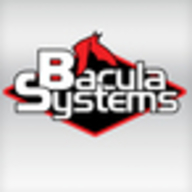

Teradata and Bacula Enterprise operate in the data management and backup solutions domain. Teradata seems to have the upper hand in large-scale analytics and data management due to its advanced features and parallel processing capabilities.
Features: Teradata boasts massive parallel processing, advanced workload management, and efficient handling of complex queries and large data volumes. Bacula Enterprise is recognized for its scalable architecture, extensive plugin support, and compatibility with various platforms, excelling in backup solutions.
Room for Improvement: Teradata could be more cost-effective and adapt better to cloud environments, struggle with high pricing, and less user-friendly UI. Bacula Enterprise needs a more intuitive graphical user interface and seamless integration for non-technical users.
Ease of Deployment and Customer Service: Teradata supports flexible deployment across on-premises and cloud environments, with generally high-rated customer service. Bacula Enterprise, mainly on-premises, provides solid technical support and efficient service.
Pricing and ROI: Teradata offers strong ROI for large projects but is often costly, making it a premium choice. Bacula Enterprise provides a more affordable solution, particularly for backup needs, with approachable licensing costs.
| Product | Market Share (%) |
|---|---|
| Teradata | 0.5% |
| Bacula Enterprise | 1.0% |
| Other | 98.5% |


| Company Size | Count |
|---|---|
| Small Business | 5 |
| Midsize Enterprise | 1 |
| Large Enterprise | 4 |
| Company Size | Count |
|---|---|
| Small Business | 28 |
| Midsize Enterprise | 13 |
| Large Enterprise | 52 |
Bacula Enterprise is a highly scalable, especially robust and secure data backup and recovery software. Its unique low cost subscription model empowers data centers to truly escape data volume price traps. With a high degree of flexibility and customizability, Bacula offers native integration with a wide range of hypervisors, databases, file systems, cloud interfaces and containers. High numbers of enterprise organizations worldwide (incl. NASA, Bank of Austria, Swisscom or Sky PLC) have adopted Bacula Enterprise backup software in mission critical environments because of its advanced features and ability to handle high data volume at very low cost.
Teradata is a powerful tool for handling substantial data volumes with its parallel processing architecture, supporting both cloud and on-premise environments efficiently. It offers impressive capabilities for fast query processing, data integration, and real-time reporting, making it suitable for diverse industrial applications.
Known for its robust parallel processing capabilities, Teradata effectively manages large datasets and provides adaptable deployment across cloud and on-premise setups. It enhances performance and scalability with features like advanced query tuning, workload management, and strong security. Users appreciate its ease of use and automation features which support real-time data reporting. The optimizer and intelligent partitioning help improve query speed and efficiency, while multi-temperature data management optimizes data handling.
What are the key features of Teradata?
What benefits and ROI do users look for?
In the finance, retail, and government sectors, Teradata is employed for data warehousing, business intelligence, and analytical processing. It handles vast datasets for activities like customer behavior modeling and enterprise data integration. Supporting efficient reporting and analytics, Teradata enhances data storage and processing, whether deployed on-premise or on cloud platforms.
We monitor all Backup and Recovery reviews to prevent fraudulent reviews and keep review quality high. We do not post reviews by company employees or direct competitors. We validate each review for authenticity via cross-reference with LinkedIn, and personal follow-up with the reviewer when necessary.